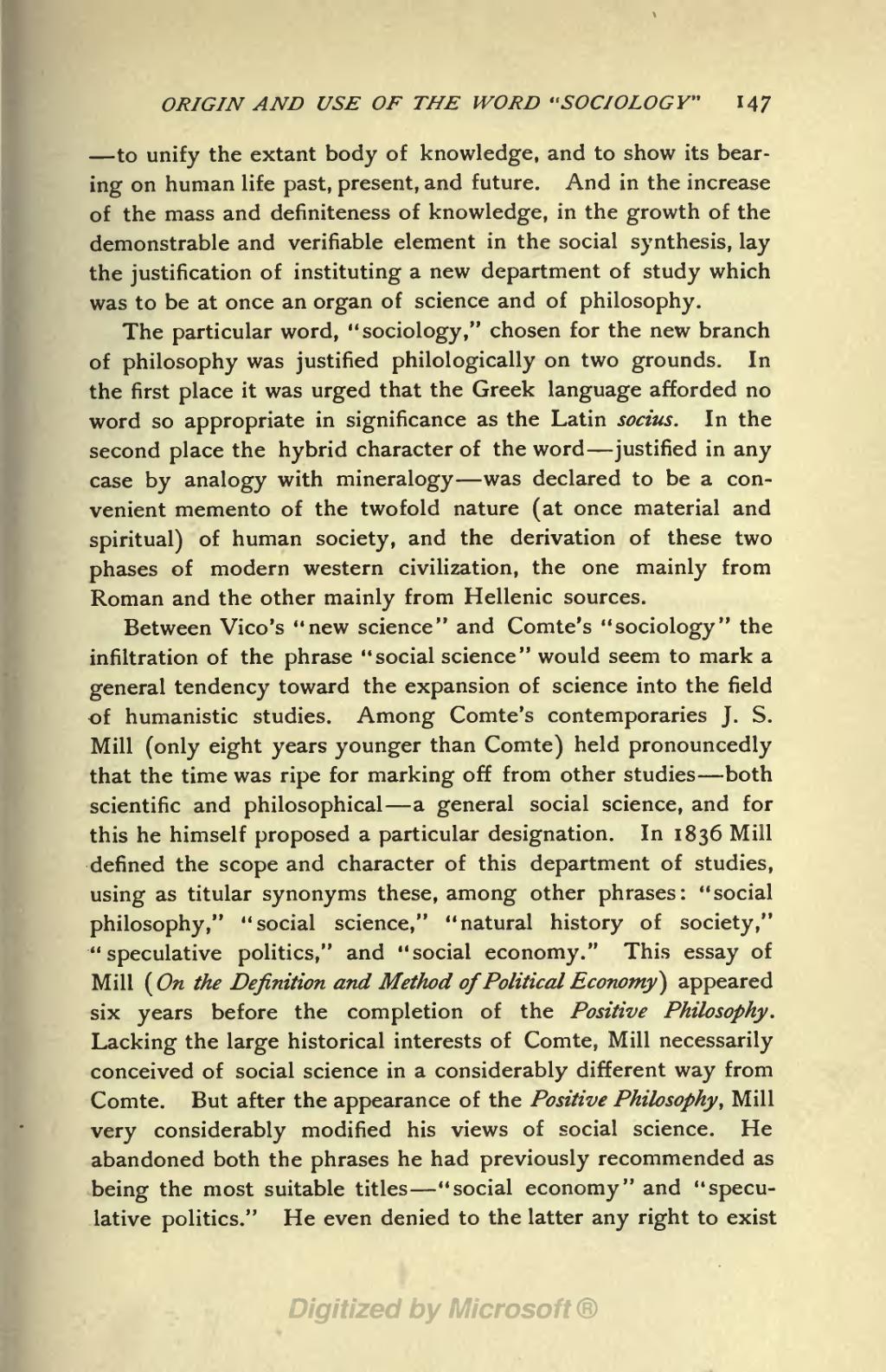—to unify the extant body of knowledge, and to show its bearing on human life past, present, and future. And in the increase of the mass and definiteness of knowledge, in the growth of the demonstrable and verifiable element in the social synthesis, lay the justification of instituting a new department of study which was to be at once an organ of science and of philosophy.
The particular word, "sociology," chosen for the new branch of philosophy was justified philologically on two grounds. In the first place it was urged that the Greek language afforded no word so appropriate in significance as the Latin socius. In the second place the hybrid character of the word—justified in any case by analogy with mineralogy—was declared to be a convenient memento of the twofold nature (at once material and spiritual) of human society, and the derivation of these two phases of modern western civilization, the one mainly from Roman and the other mainly from Hellenic sources.
Between Vice's "new science" and Comte's "sociology" the infiltration of the phrase "social science" would seem to mark a general tendency toward the expansion of science into the field of humanistic studies. Among Comte's contemporaries J. S. Mill (only eight years younger than Comte) held pronouncedly that the time was ripe for marking off from other studies both scientific and philosophical a general social science, and for this he himself proposed a particular designation. In 1836 Mill defined the scope and character of this department of studies, using as titular synonyms these, among other phrases: "social philosophy," "social science," "natural history of society," "speculative politics," and "social economy." This essay of Mill (On the Definition and Method of Political Economy) appeared six years before the completion of the Positive Philosophy. Lacking the large historical interests of Comte, Mill necessarily conceived of social science in a considerably different way from Comte. But after the appearance of the Positive Philosophy, Mill very considerably modified his views of social science. He abandoned both the phrases he had previously recommended as being the most suitable titles—"social economy" and "speculative politics." He even denied to the latter any right to exist
